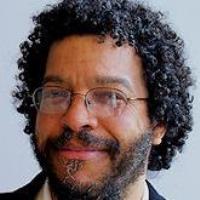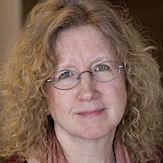
The UC San Francisco (UCSF) School of Nursing welcomes the appointment of Howard Pinderhughes as Interim Chair of the Department of Social and Behavioral Sciences (SBS). As part of the SBS tradition, there is periodic rotation of Chair and Vice Chair responsibilities among senior faculty.
Howard is associate professor in SBS. He received his PhD from UC Berkeley in Sociology and completed a UC President’s Post Doctoral Fellowship at UC Berkeley as well as a Pew Health Policy Post Doctoral Fellowship at UCSF. Howard joined the faculty in the UCSF School of Nursing in 1995. He served as chair of SBS from 2006 – 2010 and has been an active member of the Diversity in Action Committee (DIVA ™) for twenty years, serving as co-chair for twelve of those years. Howard also chaired the Faculty Council in 2003 – 2004 and led the School of Nursing’s strategic planning process. He has been a member of the University-Community Partnership Council (now the Center for Community Engagement) since its founding in 2005, serving as co-chair for four years.
Howard is extensively consulted, published, and recognized both locally and nationally. He is the author of Race in the Hood: Conflict and Violence Among Urban Youth, which examines the dynamics of racial violence in New York City. Howard has been conducting research on youth violence and violence prevention in the San Francisco Bay Area communities since 1989. He worked with Alameda County to produce the Alameda County Blueprint for Violence Prevention and with the City of San Francisco to co-author their Comprehensive Violence Prevention Plan in 2007. Howard is a lead partner with the UNITY Initiative (Urban Networks to Increase Thriving Youth), a Centers for Disease Control (CDC) funded initiative on violence prevention in thirty of the largest cities in the United States. He has worked specifically with Boston, Cleveland, Chicago, Minneapolis, Seattle, Oakland, Baltimore, and Los Angeles on their development and implementation of comprehensive violence prevention plans. Additionally, he served as co-PI for the Center on Culture, Immigration, and Youth Violence Prevention.
Currently, Howard is working on a Kaiser funded study of the impact of violence on communities and has developed a groundbreaking framework to understand community trauma and inform strategies to reduce violence and increase community resiliency. His forthcoming book, Dealing With Danger: How Inner-City Youth Cope with the Violence that Surrounds Them, examines how urban youth in the Bay Area experience various types of violence and the effects of trauma from exposure to interpersonal and structural violence on both these youth and their communities.

Ruth Malone will return to professorship this summer and will be on sabbatical beginning July 1, 2016, for a year. She is internationally known for her research on the tobacco industry, focused broadly on the public relations aspects of the tobacco epidemic, particularly the strategic activities of U.S.-based companies aimed at undermining public health and tobacco control policy. Ruth also has published studies examining the tobacco industry’s targeting of marginalized groups through both product advertising and corporate activities. Currently, she is studying the tobacco industry’s ‘corporate social responsibility’ initiatives and their implications for public health policy, the tobacco industry and the U.S. military, and why businesses voluntarily stop selling tobacco. Ruth’s research is funded by the NIH (National Cancer Institute) and the California Tobacco-Related Disease Research Program. She is currently pursuing interests in how to begin to talk and think about an endgame strategy for the tobacco epidemic. Ruth has served as an expert consultant to the CDC, the U.S. Department of Justice, and the World Health Organization. Since 2009, she has served as editor-in-chief of the leading tobacco control policy journal, Tobacco Control, published by the British Medical Association.
This is an exciting time for SBS. Ruth is leaving an impressive legacy, having strengthened and expanded research programs, cultivated efforts to move research collaborations, streamlined the SBS masters program to a five-quarter program, and supported the development of new ways for nurses to share their unique and much-needed policy expertise.
Related Coverage:
